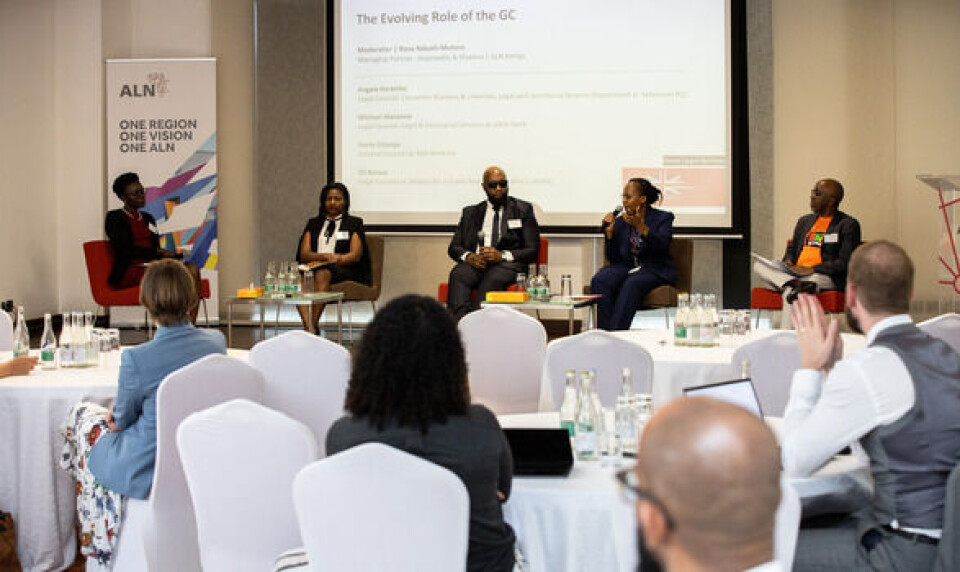This emerged during a panel discussion in Nairobi organised by Africa Legal in collaboration with the UK Ministry of Justice’s GREAT Legal Services Campaign, and hosted by Kenyan partners ALN Kenya ⏐Anjarwalla & Khanna.
The panel, moderated by Rosa Nduati-Mutero, Managing Partner at Anjarwalla & Khanna, featured Angela Karamba from Safaricom PLC, Michael Massawa of Absa Group, Jill Barasa from Alliance for Green Revolution in Africa, and Gerry Gitonga of Akili Network.
The panellists pointed out that, if they had to appoint external counsel, they would go for someone who gave solid legal solutions quickly, had expertise in drafting documents, was good at research, was solution-oriented and was always available.
“When we are looking for external international lawyers, it is no different from what we are looking for in local lawyers, because what we want is resolution in terms of law. We are looking for practical advice and practical solutions,” said Barasa.
On the issue of the changing geopolitical times and lawyers’ roles in managing the challenges, Gitonga said the roles of in-house counsel and external counsel would depend on the prevailing conditions and government restrictions. This would include changes of government which may affect how organisations work with GCs, and which require that they change their approach to legal disputes.
In a business environment involving transforming to a new identity and expanding to other regions, Massawa said the role of the GC is to help both internal and external stakeholders understand the legal ramifications of the change, as happened when Absa bank transformed from Barclays bank.
“For us at Safaricom Plc, when we expanded our business to Ethiopia, we had to first understand their legal culture before seeking the right GC for partnership. We are now engaging more in collaborative activities with the GC,” said Karamba.
Retention of talent was identified as a challenge for legal firms and corporates alike, as both groupings often lose staff who want to seek new opportunities. The panellists noted that overall more young lawyers are opting for in-house practice nowadays. This trend is not only seen in Africa, but also in the UK, noted David Greene from Edwin Coe LLD who stated that almost a third of young lawyers in the UK now choose to be GCs.
“They’ve got a choice and are making the decision to be in-house lawyers. They are being lured by the fact that in-house lawyers get paid a salary, unlike external lawyers where, if you are self-employed, if you don’t go to work you don’t get paid,” said Greene.
According to Greene, the knowledge and role of the GC in Africa has drastically changed in the past 20 years, with increased high quality practice that was not there before. He added that it is an exciting environment for lawyers to venture into.
James Holden of White & Case LLP commented that the engagement was insightful, helpful and interactive, as it showed how the role of the GC is different and practical in providing ways of doing things.
“It was a timely event that provided a platform for collaboration with African law firms. People shouldn’t come to Africa thinking they are the only ones with knowledge; Africa has a lot of knowledge that can be shared for true partnerships,” remarked Ellen-Louise Moens of Candey.
To join Africa Legal's mailing list please click here

